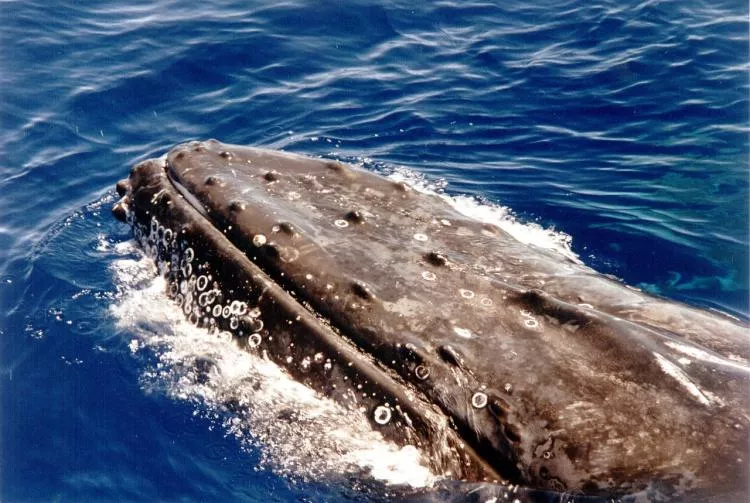Humpbacks make 'tick-tock' sounds to flush out hiding fish
Whales 'sing' for their supper while mounting joint operations to locate food
Scientists have known that humpback whales have a trick or two when it comes to finding prey at the bottom of the ocean, but how they locate a meal at night with little or no light has remained a mystery.
A new study has analyzed the importance of specific auditory cues that the creatures emit as they search the deep ocean for prey. 'Humpback whales are known to cooperate with others to corral prey near the surface,' said Professor Susan Parks of Syracuse University. “Recent studies suggest they may cooperate [with each other], when feeding on bottom prey, as well”, she added.
Whales off the Massachusetts coast were tagged with special underwater recording devices to determine how specific sounds correlated with seafloor feeding. The whales were primarily in search of sand lance, eel-like fish that bury themselves in the sand on the ocean floor.
Making noises
The study revealed that whales make 'tick-tock' noises while hunting together at night in deep water, but remain silent when hunting alone. The motive for this alteration in tactics remains unknown. Parks theorizes that the whales’ vocal sounds may help flush the sand lance out of hiding to where they can be eaten.
The clock-like sounds created by whales may also serve as a dinner bell of sorts for other nearby whales during late-night feedings. “Hints of behaviour suggest that other whales who overhear the sounds are attracted to them and may eavesdrop on other whales hunting for food, “she added.
- Log in to post comments
























